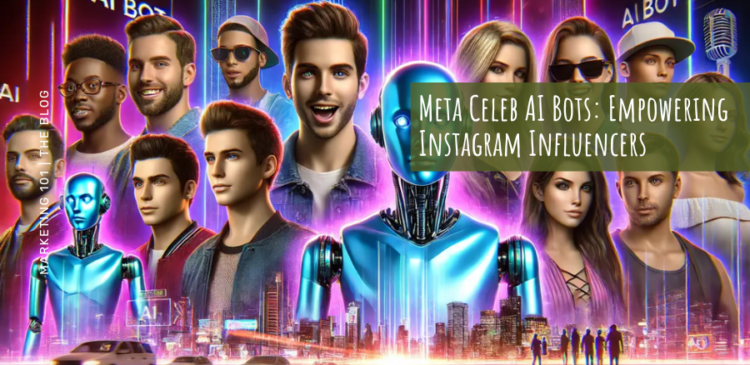Meta Celeb AI Bots

Social media and influencer marketing continue to evolve rapidly. Recently, Meta has stirred controversy with its plans to introduce AI influencer bots on Instagram, aiming to revolutionise how creators interact with their audiences. These bots, designed to mimic human influencers, raise intriguing questions about the future of marketing and authenticity online.
What is Meta Planning?
Meta, the parent company of Facebook, is actively exploring AI influencer bots as part of its strategy to enhance user engagement and advertising capabilities. Meta’s initiative, dubbed “Creator A.I.,” seeks to allow Instagram influencers to deploy AI-driven chatbots that mimic their personalities.
These bots are intended to handle direct messages and comments, aiming to streamline interaction and reduce the workload of managing large follower bases by creating content, and promoting products or services, all while appearing indistinguishable from human influencers
What are the ‘Pros’ of AI Influencer Bots?
AI influencer bots could help influencers maintain engagement with their fans more efficiently, especially for those with extensive follower counts. By automating responses based on the influencers’ social media activities, bots could provide timely interactions and personalised responses.
Unlike human influencers who may have limited availability or fluctuating content quality, AI bots can maintain a constant presence and deliver content tailored to specific demographics and trends.
What are the ‘Cons’ of AI Influencer Bots?
One major concern is authenticity. Interacting with a bot, even one designed to emulate a specific personality, lacks the genuine connection that followers seek from their idols.
AI bots lack human creativity and intuition, potentially leading to content that feels formulaic or lacks emotional resonance. This could diminish the social aspect of social media, transforming it into a more transactional experience rather than fostering real, meaningful engagement.
Another issue is the potential for misuse. Historically, AI bots have been associated with spamming and impersonation. Despite Meta’s assurances of transparency, users may be wary of trusting interactions with AI-driven entities, especially in a platform where personal connection is highly valued.
Conclusion
The introduction of AI influencer bots represents a fascinating intersection of technology and marketing strategy. While they offer efficiency and scalability, they also pose challenges related to authenticity and consumer trust. As businesses navigate this evolving landscape, finding the right balance between leveraging AI for marketing purposes and maintaining genuine human connections will be crucial




